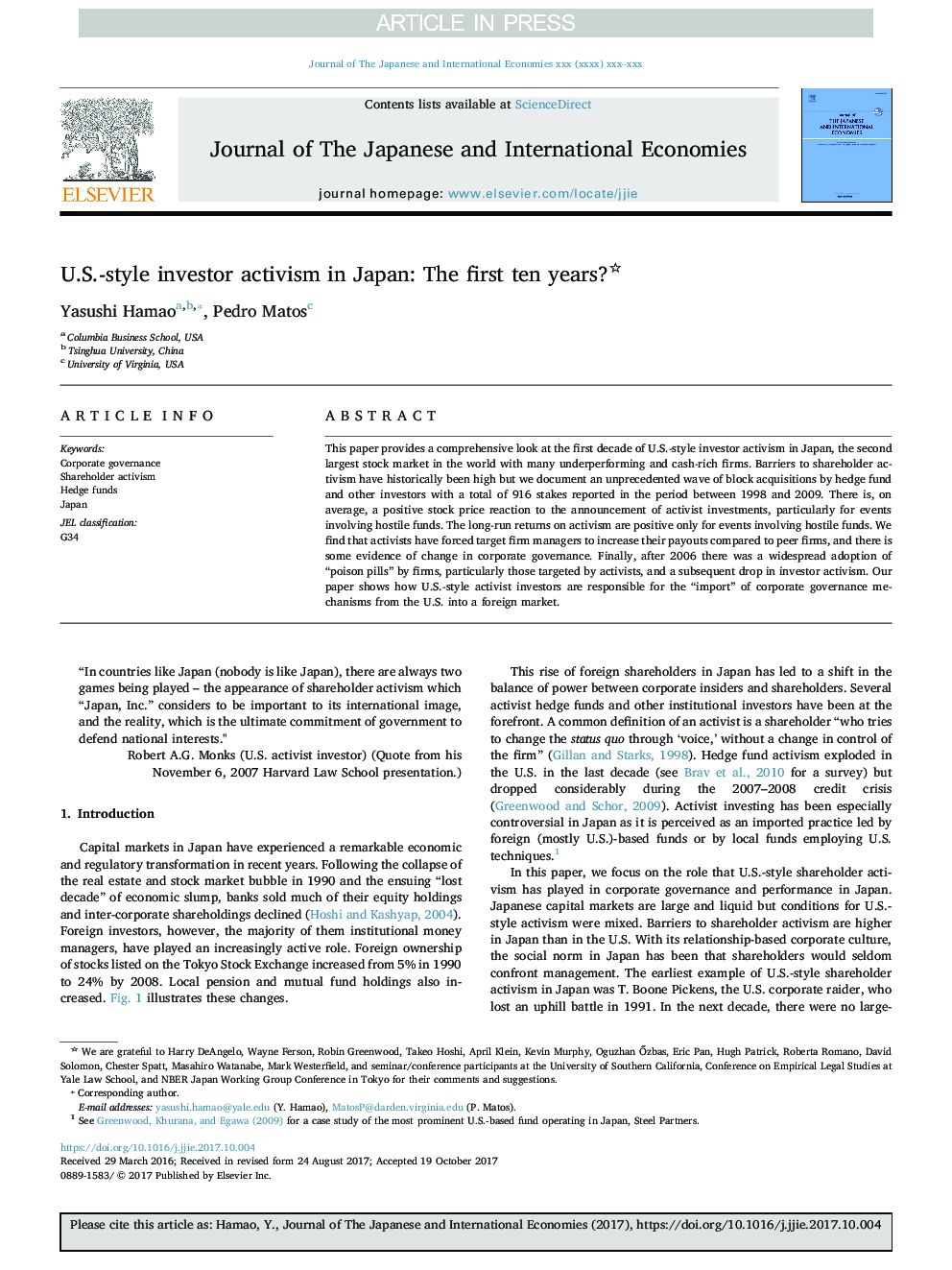| Article ID | Journal | Published Year | Pages | File Type |
|---|---|---|---|---|
| 7366238 | Journal of the Japanese and International Economies | 2018 | 26 Pages |
Abstract
This paper provides a comprehensive look at the first decade of U.S.-style investor activism in Japan, the second largest stock market in the world with many underperforming and cash-rich firms. Barriers to shareholder activism have historically been high but we document an unprecedented wave of block acquisitions by hedge fund and other investors with a total of 916 stakes reported in the period between 1998 and 2009. There is, on average, a positive stock price reaction to the announcement of activist investments, particularly for events involving hostile funds. The long-run returns on activism are positive only for events involving hostile funds. We find that activists have forced target firm managers to increase their payouts compared to peer firms, and there is some evidence of change in corporate governance. Finally, after 2006 there was a widespread adoption of “poison pills” by firms, particularly those targeted by activists, and a subsequent drop in investor activism. Our paper shows how U.S.-style activist investors are responsible for the “import” of corporate governance mechanisms from the U.S. into a foreign market.
Related Topics
Social Sciences and Humanities
Economics, Econometrics and Finance
Economics and Econometrics
Authors
Yasushi Hamao, Pedro Matos,
